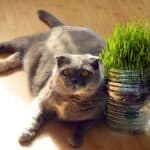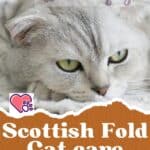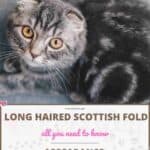Let’s find out what are the most common diseases in the Scottish Fold and how to recognize the symptoms to intervene promptly.
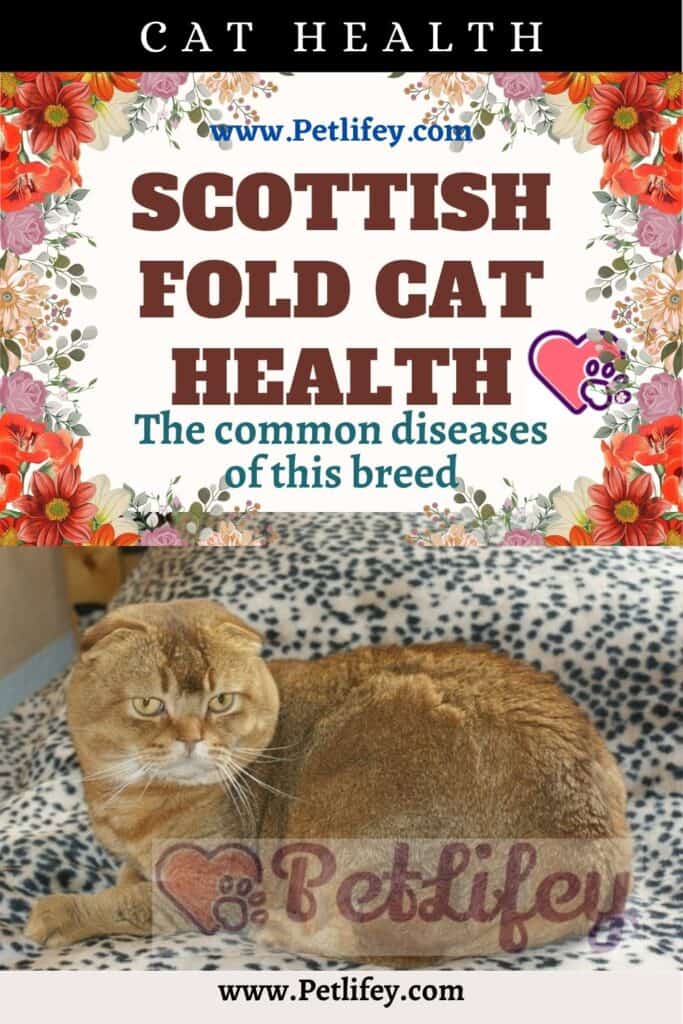
Knowing everything about the health of your four-legged friend is essential to guarantee him a long and peaceful life. In fact, knowing which diseases are most common in the Scottish Fold helps us both in terms of prevention and in the methods of intervention, helping us to promptly identify the pathology and ensure that the cat recovers its health as soon as possible.
Common diseases in the Scottish Fold: the full list
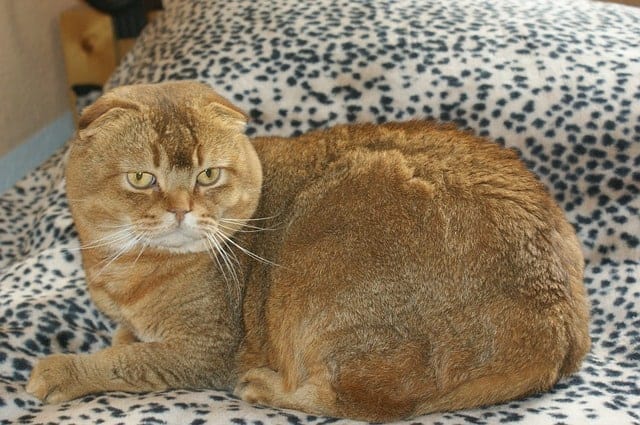
The specimens of this breed enjoy good health and a robust constitution.
Their average lifespan is between 12 and 15 years. However, these cats are predisposed to the onset of some hereditary diseases, which are genetically transmitted from one generation to the next.
Among the most common diseases in the Scottish Fold are:
- Hypertrophic myocardiopathy
- Polycystic kidney disease
- Osteochondrodysplasia
In addition to genetic diseases, specimens of this breed could contract any other common ailment in domestic cats.
In particular, cats ears tend to secrete large amounts of earwax.
For this, it is essential to clean them daily to prevent the accumulation of secretions from causing infections and irritation. To find out how to best take care of the Scottish Fold, check out this article.
Hypertrophic myocardiopathy
Hypertrophic myocardiopathy is included in the list of common diseases in the Scottish Fold.
It is a disease that affects the heart muscle, and in particular the left ventricle.
It causes a thickening of the ventricular wall, causing consequently the reduction of the cardiac lumen.
This means that the space inside the ventricle is reduced: it can contain less blood, hindering the normal blood circulation process.
What are the symptoms of this pathology? Clinical signs of the disease do not always manifest. Sometimes the cat can present:
- Difficulty in breathing
- Heart murmur
- Weakness and lethargy
- Cyanosis
- Chest pain
- Palpitations
- Fainting during exertion
Unfortunately, there is currently no definitive cure for hypertrophic myocardiopathy. For this, prevention is essential.
In fact, a genetic test is available to subject specimens predisposed to the onset of the disease. If they are affected, it is essential to prevent them from reproducing, so as not to pass it on to the future generation.
Polycystic kidney disease
Renal polycystosis is one of the most common diseases of the Scottish Fold.
It is a hereditary disease that affects one or both of the cat’s kidneys, causing growths to grow on their surface.
Initially the cat does not show any symptoms. As cysts grow, however, clinical signs similar to renal failure tend to occur:
- Halitosis
- Weakness
- Anorexia and lack of appetite
- Nausea
- Dehydration
- Increased thirst
How is renal polycystosis treated? Since there is no definitive treatment, it is only possible to subject the cat to periodic checks aimed at monitoring its state of health, as well as a therapy aimed at reducing the symptoms and the malaise of the animal.
Osteochondrodysplasia
Finally, osteochondrodysplasia closes the list of common diseases of the Scottish Fold.
It is a hereditary disease that affects the cat’s bones and joints. Consequently, it leads to abnormal development of the animal’s skeleton.
In particular, the deformities affect the spine and cause the onset of forms of arthritis, which can also be very serious.
In fact, all Scottish Folds have osteochondrodysplasia. In fact, the shape of the ears is a prerogative of this pathology.
For this reason, every specimen of the breed experiences pain due to the degeneration of the articular cartilages.
It is not always an acute pain and such as to compromise the quality of life of the feline.
In any case, many wonder how ethical it is to continue to breed an animal, even knowing that it will suffer from a more or less disabling disease.


